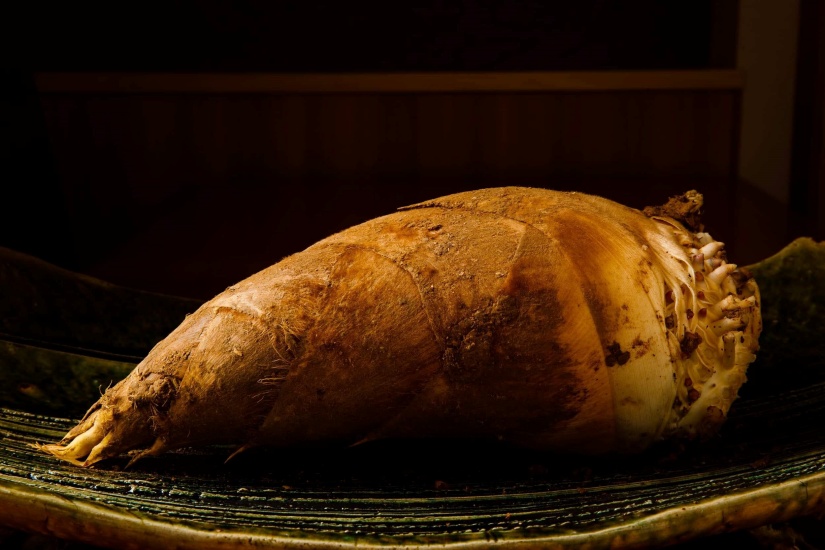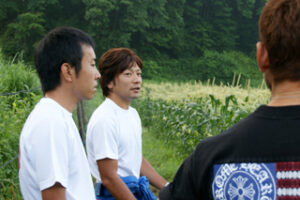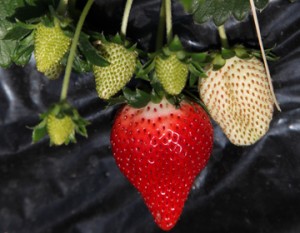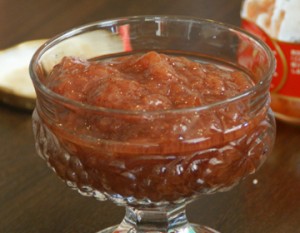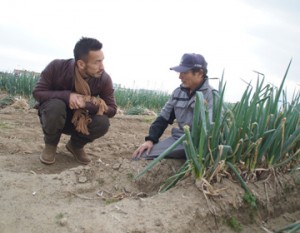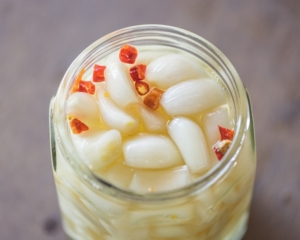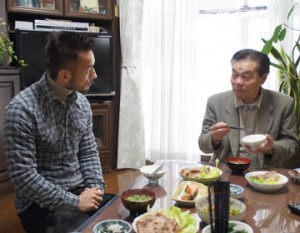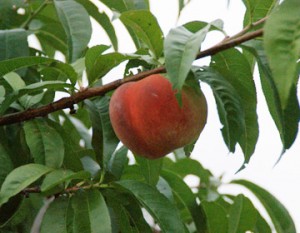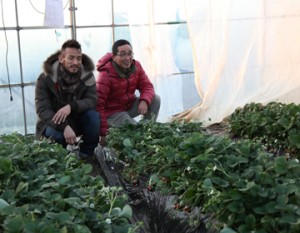Bamboo shoots are said to be the king of spring tastes. Bamboo shoots have been familiar to the Japanese people since ancient times, even appearing in the “Kojiki” written in the Nara period (710-794). Among them, “Shiroko bamboo shoots” harvested in Kyoto Prefecture are a first-class product, called “phantom bamboo shoots” due to their rarity. We caught up with the craftsmanship of “Bamboo Shoot Shunichi,” which pursues the finest albacore bamboo shoots using an original cultivation method.
Kyoto’s proud brand of bamboo shoots, “Shiroko Bamboo Shoots”

Kyoto is well known for its bamboo shoots, but its production ranks third in Japan, following Fukuoka and Kagoshima prefectures. Although Kyoto’s bamboo shoots account for only about 10% of the total, there are two reasons why Kyoto’s bamboo shoots are so special.
The first is the soil. The fine-grained clay soil allows bamboo shoots to stay in the ground as long as if asphalt had been paved over them, allowing them to grow slowly over a long period of time. Clay soil is ideal for growing sweet and tender bamboo shoots, as they grow quickly and become hard and tough when exposed to air and light. Secondly, Kyoto’s unique cultivation method has been established, which originates from the former location of the capital. Bamboo groves are covered with straw, which is then covered with soil, and so on. Throughout the long history of bamboo cultivation, our predecessors have been engaged in a trial-and-error process to find out how to produce more delicious and beautiful bamboo shoots. The result is Kyoto’s proud brand of bamboo shoots, the Shiroko bamboo shoot. Because they are grown in the soil and not exposed to sunlight, albacore bamboo shoots are pure white, soft, and have an appealing crunchy texture. They are also called “phantom bamboo shoots” because they are extremely rare and require a lot of time and effort to cultivate.
The Tsukahara bamboo shoots produced in the Tsukahara area of Rakusai district are the highest grade of Shiroko bamboo shoots. They are characterized by their tender flesh and elegant flavor with no acrid taste, and are so highly valued as a brand that they are rarely distributed to the general public.
From questioning fertilizers and herbicides to the original path

Shiroko bamboo shoots are very soft compared to common bamboo shoots, and if not carefully dug, they will collapse quickly. It is extremely difficult to find albino bamboo shoots that stay in the ground and grow. The harvesting of bamboo shoots alone is a labor-intensive process, and Mr. Kazuki Tahara of “Bamboo Shoot Shunichi” puts his heart and soul into it, saying, “If I am going to do something, I have to do it to the last drop of blood.
I started working in bamboo groves when I was in the fifth grade of elementary school, helping my grandfather, who was a farmer and bamboo grove grower. In the beginning, it was all new to me and everything was fun. Then, when I was in high school, I started asking myself, ‘Why do we use this fertilizer? Why do we use herbicides? I asked my grandfather, but he said, ‘I’ve been doing this for a long time. When I asked my grandfather about it, he just said, “We’ve been doing it this way for a long time, so there’s no doubt about it. My questions remained unanswered, but I wanted to try things on my own, and when I was 20 years old, I decided to start my own business.
He had no money to buy fertilizer and started with a light truck that he inherited from his grandfather. At the same time, he realized that it would be difficult to make a living only from bamboo shoots, so he studied Oriental medicine to obtain a license as an acupuncture and moxibustion massage therapist, which would allow him to work while he was farming. His studies led him to realize how much what we put in our mouths affects our bodies, and he began to rethink fertilizers and soil from the ground up.
Bamboo shoot cultivation is soil cultivation

Couldn’t we use something around us instead of relying on chemical fertilizers? While eating at a soba (buckwheat noodle) restaurant in the market, he wondered if he could feed bamboo shoots with this delicious dashi broth. He immediately asked what kind of ingredients they used, and was given some kelp and shavings after making the dashi broth. He also tried sprinkling okara (bean curd) from tofu stores and making fertilizer from discarded parts of tuna from tuna specialty stores at the market. Whenever he came across something he thought was “really tasty,” he began to think about how he could apply it to bamboo shoot production.
Other bamboo farmers have always said to me, ‘You are doing something strange,’ or ‘What’s the point of putting such things in? The mountains lack things from the sea, so by mixing fish, kelp, and shells, which are high in minerals and amino acids, into the soil, the soil becomes rich in nutrients. We don’t use herbicides, so grass grows normally and it’s hard to mow.”
Despite occasional failures, he has continued to take on new challenges with the single-minded determination to produce something he is satisfied with. Wanting first-rate bamboo shoots to be used by first-rate chefs, he opened the Michelin Guide and kept making phone calls. Most of the time, the sudden sales pitch from an unknown young man was not taken seriously, but once the product was purchased, even on a whim, the response was positive, and he was often told, “It was delicious,” or “When can I buy it again? When can I buy it next time? As a result, word of mouth among chefs led to an increase in inquiries, and now Tahara’s bamboo shoots are served at Michelin-starred restaurants all over Japan.
収穫後のたけのこは鮮度が命

Another of Shunichi’s specialties is the freshness of its bamboo shoots. Bamboo shoots grow fast and deteriorate quickly. The longer it takes to grow, the more bitter the taste becomes, and if left at room temperature, it quickly becomes hard. Mr. Tahara introduced refrigerated trucks that can transport freshly dug bamboo shoots in the morning. Drying and sunlight are the biggest enemies of bamboo shoots,” he says. Selling freshly dug bamboo shoots at the storefront is like selling fresh fish under the sun at room temperature,” says Tahara. He says it is his responsibility as a producer to thoroughly control the quality of bamboo shoots after they are picked.
Currently, fresh bamboo shoots are only sold directly to restaurants. The bamboo shoots are shipped fresh and delivered by cool delivery, and are highly praised for their “sweetness with little bitterness” and “like fruit when bitten raw.
Delicious bamboo shoots to be delivered to as many people as possible

For the general public, bamboo shoots are a troublesome foodstuff that requires peeling many layers of skin, boiling in water, and removing the scum. The company started mail-order sales of “mizuni” (boiled bamboo shoots in water) in the hope of bringing the best seasonal taste of bamboo shoots to as many people as possible. The product has become a popular item that sells out quickly as soon as it is in stock, as fresh bamboo shoots are delivered boiled in water.
It is said that it usually takes about two hours to remove the acrid taste from bamboo shoots, but Mr. Tahara’s bamboo shoots are ready in 40 minutes. The secret to their delicious taste is that they are soft and have little bitterness even in their raw state, shortening the boiling time, and thus retaining the crunchy texture that is typical of bamboo shoots.

From 2024, the company began selling “Bamboo Shoot Ajillo,” a dish with three different flavors. The product was completed by carefully selecting the oil and ingredients that go well with bamboo shoots through numerous prototypes, and using ingredients such as seafood landed in Kyotango, garlic from Aomori, and Japanese hawk’s claw. The bamboo shoots, of which the company takes pride, are cut into large pieces and used in abundance so that customers can enjoy their texture. The bamboo shoots, which have a strong image in Japanese cuisine, are arranged in a Western style so that young people can enjoy them, and they are marinated in oil to extend their shelf life and make them more readily available.
With hard work, agriculture can turn into a world of dreams.

Bamboo shoots have been around us since ancient times, but due to high summer temperatures and lack of rain, the harvest has been reduced to half of what it used to be. However, Mr. Tahara, who has spent a great deal of time and effort to cultivate bamboo shoots, says, “I don’t want to make excuses for the changes in the environment. Not wanting to make excuses for the changing environment,” he began watering his bamboo groves with sprinklers several years ago and has been able to maintain a constant yield even in the face of continuing bad harvests. Watering vast bamboo thickets is unheard of in the bamboo shoot industry. But he says he continues to take on these challenges because he has a dream.
I work as an acupuncture and moxibustion massage therapist in parallel with bamboo shoots, so I can make a living even outside of the period from late March to early May, when bamboo shoots are harvested,” he says. But really, my goal is to create a future where I can eat from bamboo shoots alone. In fact, if you look outside, there are many abandoned bamboo groves, and the number of bamboo growers is decreasing due to the heavy labor involved. The yield is also decreasing year by year, and there is a possibility that in a few years, bamboo shoots may no longer be available on the market. That is why I would like to create a system that allows us to receive proper compensation for our persistence and efforts, rather than letting the market price dictate the price. For this reason, I am raising the value of bamboo shoots by setting a firm price, and I am also making efforts to meet that price. I want to show the next generation that, depending on their own efforts, agriculture can change into a world of dreams.
Mr. Tahara says there are still many things he would like to learn more about and try in order to achieve this goal. What kind of news will we hear from the world of bamboo shoots in the future? I am looking forward to hearing more news from the world of bamboo shoots, and I can’t wait to find your name on it.



